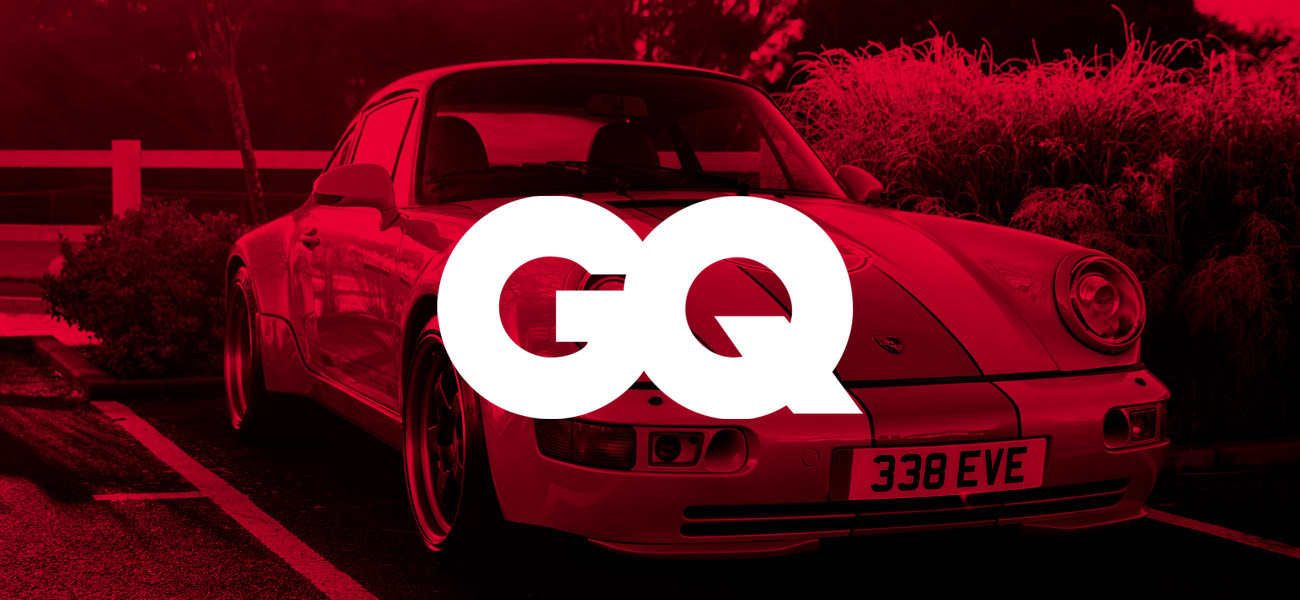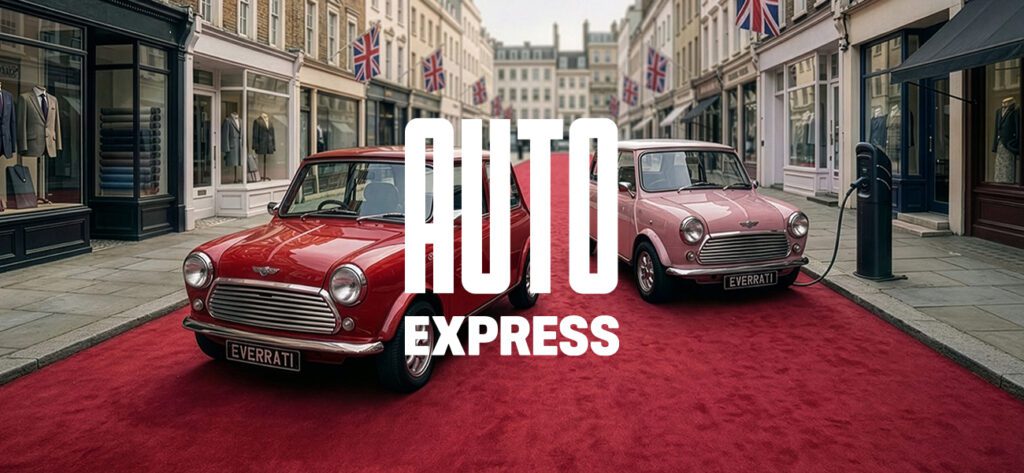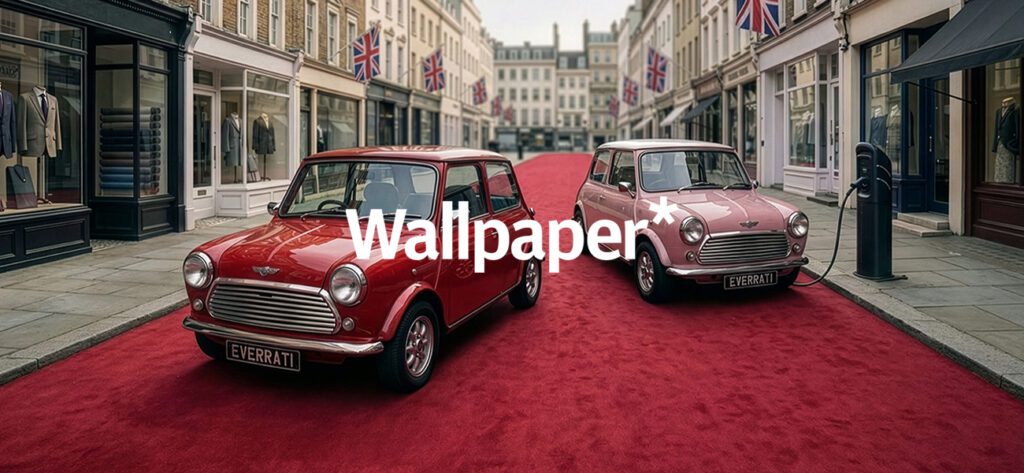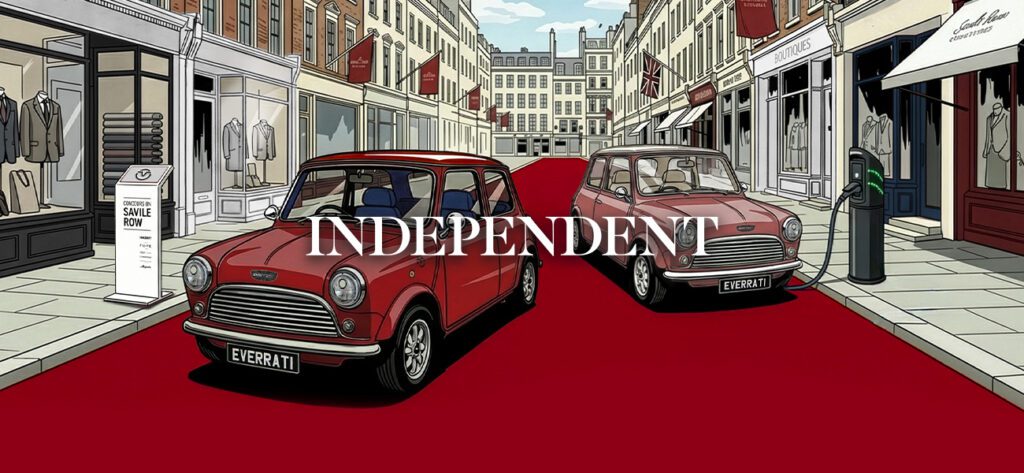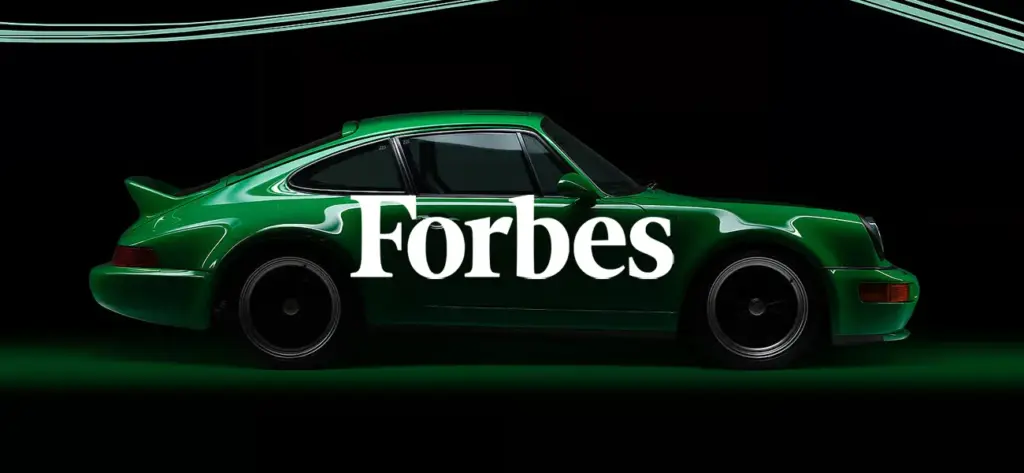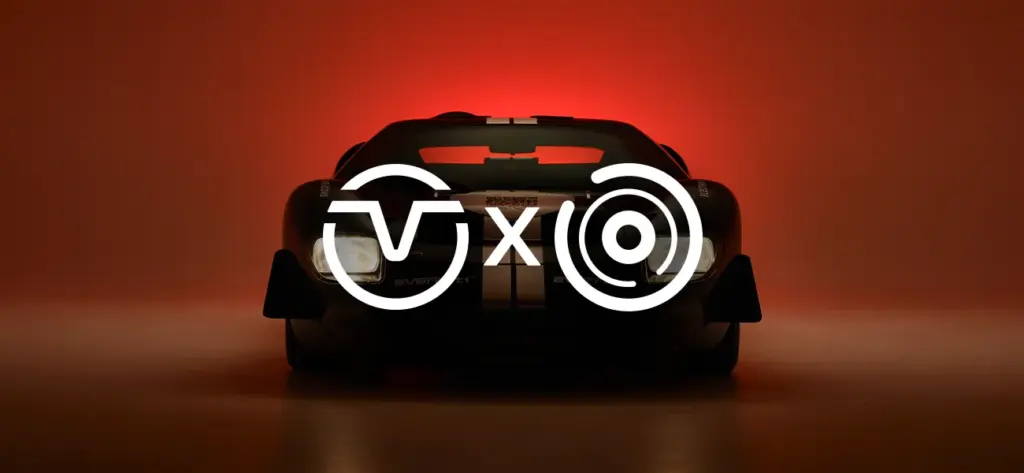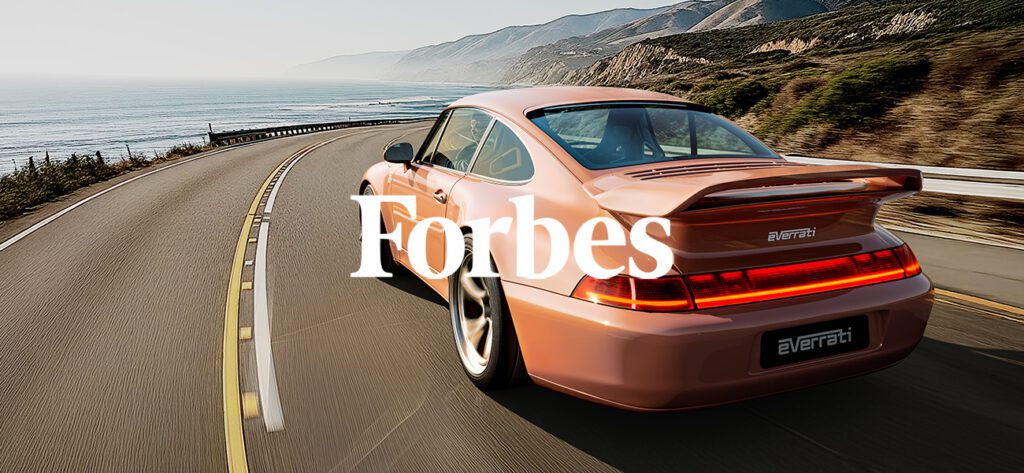British start-up Everrati are masters at turning beautiful classic cars into stunning EVs. GQ took a couple of them for a spin…
At last, an electric vehicle manufacturer that doesn’t take itself too seriously. British start-up Everrati are future-proofing iconic vehicles of the past by swapping out their internal combustion organs for battery-electric innards. But that’s not where the engineering ends. In addition to full-restoration, they’re adding flat-six sounds, burbling bodywork and the whiff of fuel. Everrati are putting feedback into poster-worthy EVs.
Based out of an old air force building in Oxfordshire and with a Cold War-era runway on which to test its machinery, the company was founded in 2018 by fin-tech millionaire Justin Lunny and ex-Daimler and VW automotive man Nick Williams. They met spectating at Le Mans and discovered a shared vision for substituting 20th-century displacement for 21st-century kilowatt-hours. Lunny, who lives in Windsor, was inspired by both his young daughter, who is apparently very perturbed by rising ocean levels, and the 1968 Jaguar E-Type Concept Zero in which the newly minted Duke and Duchess of Sussex made their wedding exit.
Modern cars are mostly forgettable homogenous-looking things. Classics like the E-Type, on the other hand, have sensual curves and raw sensations that are, effectively, outlawed from production today. Also, they have a habit of leaving oily puddles on your driveway and emissions levels that’ll get you shouted at by Greta Thurnberg acolytes. By taking out the petrol parts and replacing them with state-of-the-art lithium-ion batteries and electric motors, you can have the best of both worlds: A bewitching pre-internet artwork on wheels, combined with a 100% clean and efficient future-facing powerplant.
CEO Justin compares it to buying a pile in the country. “You want a country house to be old and charming architecturally, and you don’t want to do anything to spoil that, but you also expect it to have up-to-date heating and a modern kitchen”. In the world of classic car anoraks, originality and matching numbers are key, but Everrati will give you all the replaced parts if you want to keep them, including the engine which they’ll put in a display case for you. Makes a great coffee table. After all, market intelligence of EV drivers gives figures of 90-99% saying they’ll never go back to a combustion car again. “This means the market for engaging and fun cars is going to explode,” says Lunny, who has owned more than his fair share of Ferraris.
Everrati are producing three different models right now: The Porsche 964 (the third-gen 911 from 1989-93) priced from £200,000 +VAT, plus donor car; the Shelby official-replica ‘Superformance’ GT40 priced from £440k +VAT, including the South Africa-built donor car (total power from the twin electric motors is 800bhp!); and, hot off the press, the Land Rover Series IIA, which costs £150k +VAT plus the donor car.
The company claims the battery range of the Land Rover is a minimum of 100 miles and the Porsche 165, but if you don’t thrash these cars we’re told you can expect much better energy economy than that. These are quite small chassis, though, which means one’s unable to squeeze in as many battery modules as you might an Audi e-Tron or Polestar 2. Everrati’s battery packs are 53kWh.
GQ went to Everrati’s former USAF compound in Upper Heyford to test the Series IIA prototype. This vehicle was born 50 miles away in Solihull in 1971, was found in reasonable shape on a farm in Somerset, and has since been given a new lease of life. Bespoke in all manner of ways, it had a complete nut and bolt restoration before being stuffed full of OEM-grade BEV-tech. It’s now painted in period-correct pastel green and boasts brown Bridge of Weir leather, heated seats and a pristine canvas roof. The transfer box is from a Defender, with just forward, reverse and neutral to choose from. The suspension is period, but uprated, while the drum brakes are new but built to the original principle, with assisted energy re-gen on top, which makes a big difference. It also benefits from power steering, as well as air conditioning. It goes, stops and steers better than a Series IIA should, but not at the expense of any character.
It is silent, which is a talking point. Park it up at a charging spot and wait for a traffic warden to give you a ticket – you’ll feel wonderfully smug arguing your case. Alternatively, Everrati can install speakers that emerge from the car’s exterior to simulate engine noises, which you can play through an app on your smartphone. We’d like a clattering diesel, please, and a special sound-file for crunching gears. One customer has specified the sound of a galloping horse. Why not a stampede? With the app, you can do both – or anything else that takes your fancy.
Luxury carmakers like Mercedes already have scents (lavender and whatnot) that can be commanded digitally and deployed through the ventilation system. Our suggestion that Everrati provides eau du diesel rouge and manure cologne for the Landie is met with enthusiastic nods.
This is the perfect car in which to take your mates down to the pub. One can also see it being very popular among the guests of five-star Caribbean resorts. It opens classic Land Rovers up to a whole new audience.
Another clever innovation is NVH – which stands for noise, vibration and harshness. Haptics are mounted inside the bodywork, seats, gearstick and steering wheel to simulate the buzz of a traditional powertrain. Put your hand on the bonnet and you’d swear there was a four-pot underneath. Similarly, on the Porsche, the rear has a purring vibration to the ear and touch. The 964 has external speakers inside what look just like Carrera exhaust pipes. Given it’s eligible for a green stripe on its number plate, it’s going to get some quizzical looks.
The Porsche 964, which took eight months to re-engineer, looks like it’s just come off the Stuttgart production line, and GQ enthusiastically jumped in and belted up.
To drive, it feels and sounds halfway between a 1991 911 C4 and the arcade game Outrun.
This is not a car for Porsche purists, but if it doesn’t bring a smile to your face you’re in serious need of lightening the fuck up. True, for quarter of a million quid you might expect something more thoroughbred, but a handful of rich, urbane disruptors might be reading this ready to dive in.
Everrati have cleverly mirrored the 964’s torque map, so rather than getting that Ludicrous Tesla interstellar acceleration it serves up a more familiar progression of speed, so it’s close to its original dynamic character, but still hits 60mph in sub-four seconds. Power is 500bhp, and overall it’s 20kg lighter than the original car thanks to carbon fibre body panels. The weight ratio is bang on the traditional 40:60 front/rear recipe, but the centre of gravity is lower as per all EVs. The tail-end is more planted than usual, which will reassure your policy provider, but it still knows how to party. We drove it in monsoon conditions and it was lively but remained controlled. It has electronically adaptable suspension with different drives selected by touch screen. The most banzai is known as the ‘Tim Harvey setting’, given the 1992 British Touring Car Champion undertook testing duties.
The approach taken here is miles apart from Singer, which also re-engineers 964s, but does so to make them look and feel more retro, while ensuring Fabergé levels of bespoke detail and design flair. Singer, which rebuilds and upgrades the air-cooled flat-six, seeks donor cars that are rear-wheel-drive, manual and hard-top. Everrati look for less expensive Tiptronic C2s and C4s, and will take a convertible or Targa. “We swim in different pools”, says Chief Operating Officer Nick Williams. “We’ll work with less loved cars, not holy grail cars.”
All Everratis are low volume. The Landie is expected to be a bestseller at up to three cars a month. The company aren’t releasing sales figures, but we understand they’ve sold around nine cars across all models so far in the UK, Europe and USA. They’re embarking on a Series A fundraising round, following a friends and family investment, to solidify their financial position, and will soon announce new facilities and a manufacturing workshop in the USA in order to expand the business and cut down its carbon footprint. The company will also consider re-engineering lower value classics.
One of Everrati’s customers, we’re told, is a sustainable tech billionaire in his mid-30s who lives in Silicon Valley. His dad had a Porsche 964 when he was growing up, but the son felt he could never be seen to own a sports car himself because of his green credentials… until now.
Tesla has fitted its cars with some amusing gimmicks, but they all look the same. Other manufacturers are offputtingly earnest. The danger is the new car market starts to look like a fridge freezer sale – all identical white goods, and no fun to be had. Everrati proves electric cars can still be a laugh.
Source : GQ Magazine
